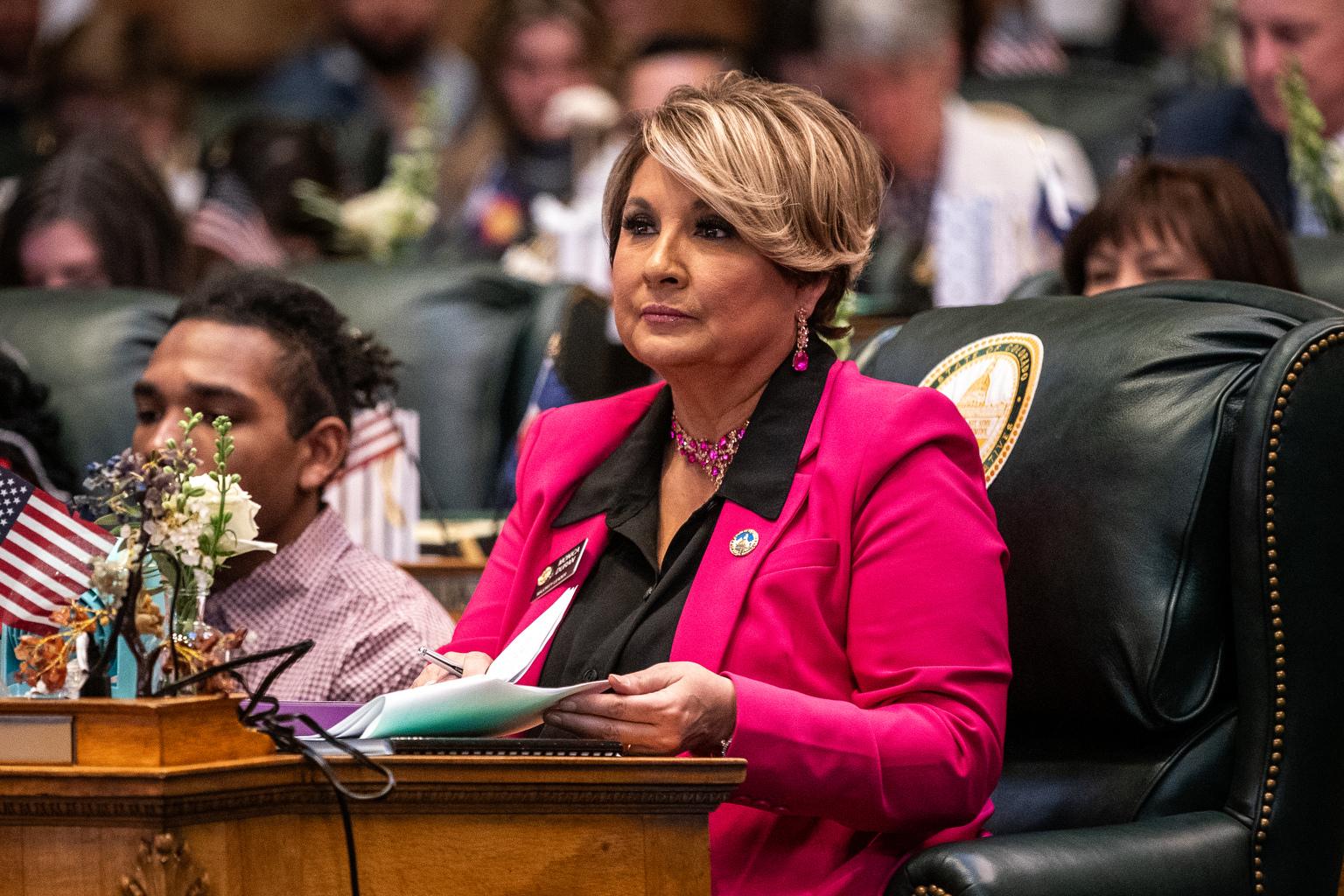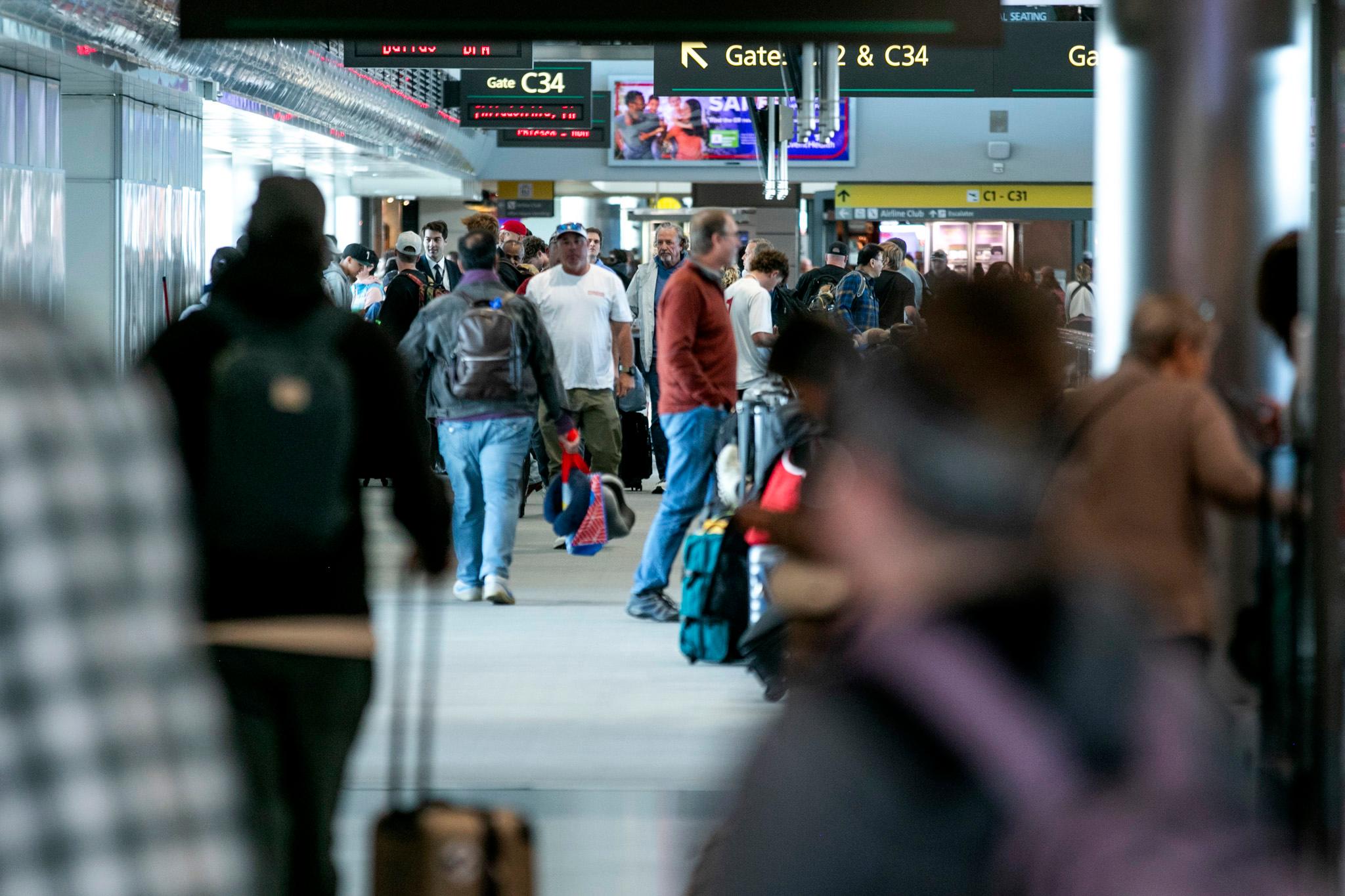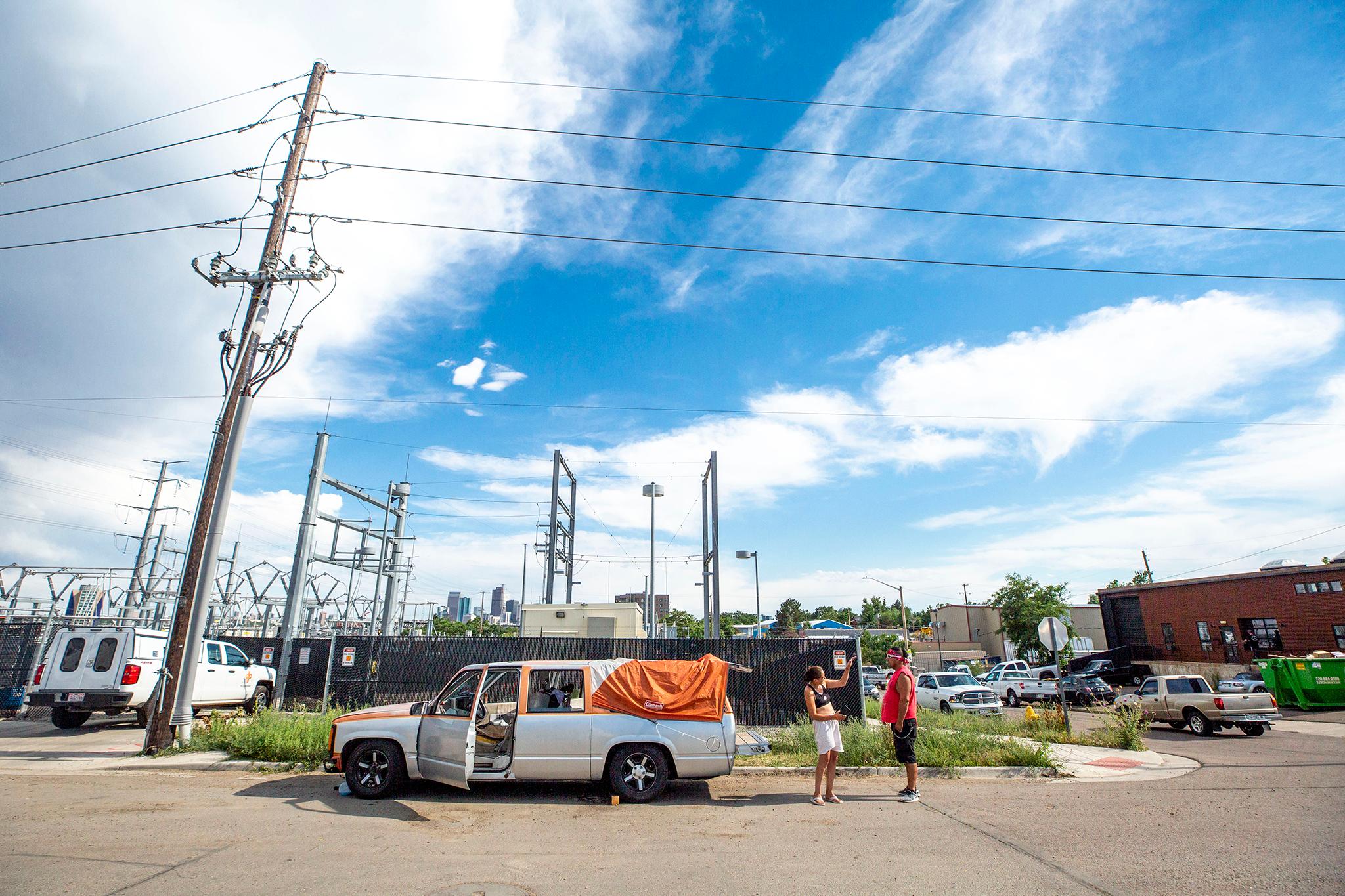
Updated Sept. 3 at 11:42 a.m.: The CDC plans to enact a moratorium that will prevent many evictions across the United States starting this Friday, Sept. 4. Currently, lawyers say it's unclear exactly what that means or looks like for evictions in Colorado.
Updated Aug. 11 at 10 a.m.: Gov. Polis has extended his executive order requiring landlords to give tenants at least 30-days notice before going to court.
Evictions are legal again in Colorado after Gov. Jared Polis allowed his order temporarily suspending them to expire on June 14.
But cases are playing out differently depending on when and where they started.
Older cases are moving the fastest, with no guarantee that tenants will have another chance to repay their debt. More recent eviction filings will move more slowly, with landlords required to give at least 30-days notice before going to court.
Here’s what you need to know.
Can I be evicted right now in Colorado?
Yes. Landlords across Colorado may now file court cases to evict tenants and sheriff’s departments are again conducting removals. Tenants can be evicted if they are behind on rent, even if their failure to pay is a result of COVID-19 economic hardship.
Are there any limits on evictions right now?
Yes. The rules on evictions aren't uniform across Colorado, or even in different buildings. Evictions are still banned until July 25 for properties that have federally backed mortgages. Renters can check their building's status at the Fannie Mae and Freddie Mac websites, or through the National Low Income Housing Coalition’s overview tool.
Starting July 26, landlords on those properties can also initiate an eviction process, but must give tenants in Colorado a 30-day notice.
In all Colorado cases, tenants have longer than usual to repay back rent. Landlords must allow 30 days before they go to court. If you can repay before the deadline, the case goes away. If you don’t, the landlord is no longer obligated to accept back rent from that point on. That 30-day deadline could shrink if Polis does not extend his eviction orders in August.
Landlords are allowed to charge late fees again, and they may raise rent if the lease allows.
What if I fell behind during the pandemic?
You can still be evicted, no matter when you failed to pay rent.
Polis formally banned almost all evictions from April 30 to May 29. Landlords were not allowed to post rent demands or file legal claims during that period. Landlords were also not allowed to charge late fees. Landlords could attempt eviction if there was a threat to public safety. If a landlord attempted to start an eviction during that time, it may not stand up in court — although the landlord could simply restart the process now.
Polis enforced a looser ban from May 30 to June 13. This one only protected people if their non-payment was "caused by financial hardship due to COVID-19." That could make court cases from this period more complicated. And, now that the order has expired, courts can proceed as normal regardless.
How can I tell if I’m facing eviction?
If you’re unsure whether your landlord is pursuing eviction, you could ask them your landlord whether they have posted a demand for rent. You should also call your county court to check whether the landlord has filed an eviction against you. A list of county courts and contact information is available online. If you’re not sure what county you live in, check online.
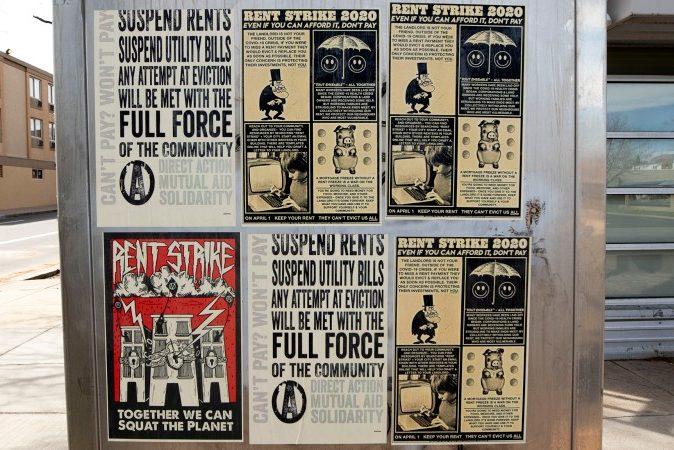
How are courts handling these cases?
Many courts are handling eviction cases virtually and most no longer have a moratorium. Call your county court to ask how the hearing will be held. If you don’t have a computer or internet access, check whether a local library or a friend might be able to help. If you don’t show up to your hearing, the case will be decided by default against you.
How do evictions work in Colorado?
Here is how Colorado’s eviction process works under the current rules.
- When a tenant falls behind on rent, their landlord may post a demand for payment. That notice will say how much the tenant owes, and it will set a deadline for repayment.
- The tenant can “cure” the problem by repaying that amount before the deadline. Currently, the repayment period is 30 days.
- Once the deadline passes, the landlord may file a legal claim in court to start the eviction proceedings. There is little that tenants can do to stop eviction after the deadline, except if they can prove their case in court.
- After the case is filed, the court schedules a hearing. Those hearings are generally conducted via teleconference during the pandemic. Tenants are usually notified of their hearing through email and if they fail to dial in, the case may automatically be decided against them. If they do participate, the tenant or their attorney can present evidence to argue why they shouldn’t be evicted.
- If the judge rules against the tenant, the next step is to issue a writ of restitution. The judge must wait at least 48 hours after deciding the case before issuing the writ. Once the writ is issued, the local sheriff’s department can forcibly remove the tenant from the apartment at any time. Tenants may choose to move out earlier in order to avoid being removed.
Javier Mabery, an attorney with the COVID-19 Eviction Defense Project, warns that once a hearing is scheduled, it’s very difficult for things to go in the tenant’s favor.
“The odds are stacked against them unless they have the money to pay the rent and tell the judge ... but the judge is under no obligation to force the landlord to accept the rent,” Mabery said.
What should I do if I’m behind on rent?
The simplest way to avoid eviction is to work out a deal with your landlord. The best time to do that is before the payment deadline expires and the landlord goes to court. Many landlords are allowing tenants to repay their back rent over several months.
If you come to an agreement, attorneys say that it should be written in clear, simple language and signed by both parties. The state has published a template for repayment agreements.
Once the legal case begins, landlords are not obligated to accept repayment, and often will proceed with removal. Eviction cases may become a part of the tenant’s legal record once they are filed, which can make it harder to secure future housing.
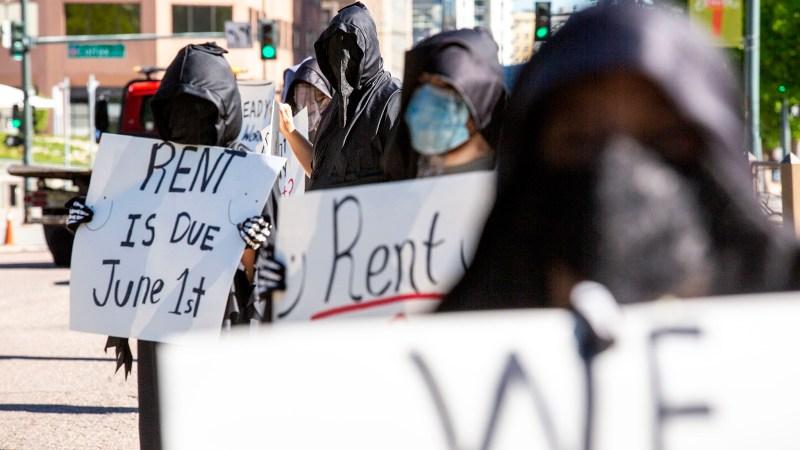
What resources are available for renters in Colorado?
People facing evictions can ask for free legal help from an attorney through the COVID-19 Eviction Defense Project, a private community effort. Similar help is available through Colorado Legal Services and the Colorado Poverty Law Project.
Various nonprofits and local governments offer different forms of help with rent and other bills. For example, Denver residents can apply for direct cash assistance from the city. The state has a map of eviction prevention programs across Colorado.
The website OnwardCO has a list of services that provide food, medical care and more. The state PEAK service can provide food, cash assistance and more. The state-run LEAP program offers help with energy bills during the winter. Mile High United Way also runs a 2-1-1 service to connect people with aid and assistance. The Family Resource Center Association has partners across Colorado that can help.
The GES Coalition has a Spanish and English-language guide to housing resources in Denver.
The Colorado Apartment Association has also been raising funds to assist tenants who fall behind on rent. Renters can apply for that help through the Resident Relief Foundation.
What if I had a pre-existing evictions case from before the moratorium?
Some evictions have been pending in court for months. Some local courts simply froze those cases and are now resuming them via teleconference hearings.
In some cases, that means a hearing will now be scheduled. But if the case was already decided, a judge may issue a writ for eviction at any time.
In other districts, courts refused to accept eviction cases or canceled them. Landlords can now restart those cases. It may take weeks to complete the legal proceedings — but some courts and sheriffs are handling these "backlog" cases first. Again, landlords are not obligated to accept repayment in these cases, although tenants can still attempt to negotiate a repayment deal. If the landlord agrees, they can withdraw the case.
What can landlords do?
Many landlords depend on their rental income to pay the mortgages on their properties. Without them, they can be at risk of foreclosure. If it’s a federally backed loan, lenders and servicers cannot begin or finalize a foreclosure till Aug. 31.
Besides negotiating repayment deals, landlords also can seek forbearance from their mortgage lender. If the lender agrees, the landlord can delay their monthly mortgage payments. For federally backed loans, a homeowner has the right to request a forbearance for a year in total.



